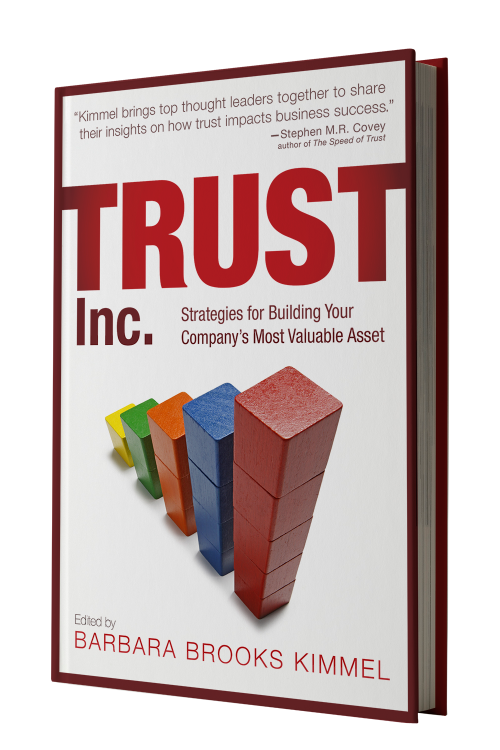Ask any C-Suite executive about organizational trust and most will tell you that the “soft stuff” belongs to another department. Soft stuff? How many business executives do you know who could pass this “trust” test?
The Hard Cost of Low Trust
Question: Gallup’s research (2011) places ________ % of U.S. workers as either not engaged or actively disengaged.
Answer: A startling 71%
Question: The price tag of disengagement (Gallup) is $________
Answer: $350 billion a year. That roughly approximates the annual combined revenue of Apple, General Motors and General Electric.
Question: The Washington Post reported that “the federal government imposed an estimated $_________ in regulatory costs on the economy (in 2012).”
Answer: $216 billion in 2012, nearly double its previous record.
Question: The cost of the tort litigation system alone in the United States is over $________.
Answer: $250 billion. – or 2% of GDP, Forbes, January 2012
Question: The six biggest U.S. banks, led by JPMorgan Chase & Co. (JPM) and Bank of America Corp., have piled up $___________ in legal costs since the financial crisis.
Answer: $103 billion in legal costs since the financial crisis, more than all dividends paid to shareholders in the past five years. Bloomberg, August 2013
Question: According to The Economist Intelligence Unit (2010), __________ % of senior leaders say disengaged employees are considered one of the biggest threats facing their business. However, only ____________ % of them reported doing anything about this problem.
Answer: 84%, 12%
Question: In 2011 , WIQ calculated that mistrust is costing companies between ______% to ______% revenue loss, and _____% to _______% loss of profitability. WIQ is a team sourcing technology company
Answer: 14-18% revenue loss and 17-24% loss of profitability.
Question: In the 1960’s, if you introduced a new product______% of the people who viewed it for the first time believed the corporate promise. Forty years later, if you performed the same exercise less than _______% believed it was true. Howard Schultz, Founder & CEO Starbucks
Answer: 90% believed the corporate promise, now less than 10% believe it to be true.
Question: According to Edelman globally, _____% of consumers trust businesses, but just ______% trust business leadership.
Answer: 50% of consumers trust business, while 18% trust business leadership.
Question: In the United States, Edelman’s statistics are similar, but the story is a bit worse for leadership. While _____% of U.S. consumers trust businesses, just ____% trust business leadership.
Answer: 50% of consumers trust business while just 15% trust business leadership.
The Low Cost of Hard Trust
Unfortunately, it’s easier to find data on the cost associated with low trust. But here are a few test questions addressing the cost savings of hard trust.
Question: A study by the Russell Investment Group finds the “100 Best Companies to Work for in America (In which trust represents 60 percent of the overall criteria) earned over _______ times the returns of the market at large.
Answer: See for yourself. resources.greatplacetowork.com/article/pdf/how_trust_affects_the_bottom_line.pdf
Question: The Towers Watson 2011-2012 “Change and Communication ROI Study Report” shows that companies that have highly-effective communications practices are _________ times more likely to outperform their peers financially.
Answer: 1.7 times
And finally, Trust Across America – Trust Around the World continues to track the performance of America’s Most Trustworthy Companies agains the S&P 500 and the findings are nothing less than remarkable.
The next time a business executive tells you “trust is soft”, suggest he take the “Test” and maybe (even) buy our new book:
Trust Inc., Strategies for Building Your Company’s Most Valuable Asset.




Attention C-suite execs and board members. Need evidence of something some people consider “soft” that really has hard, bottom-line results. Barbara Kimmel nails it here. Gregg and I are proud to be essay contributors to “Trust Inc.”
It’s time for leaders to build trust-based organizations.
Great work on this collection of hard data demonstrating the impact of trust on the bottom line through employee engagement, revenue attainment, marketing and risk/legal.